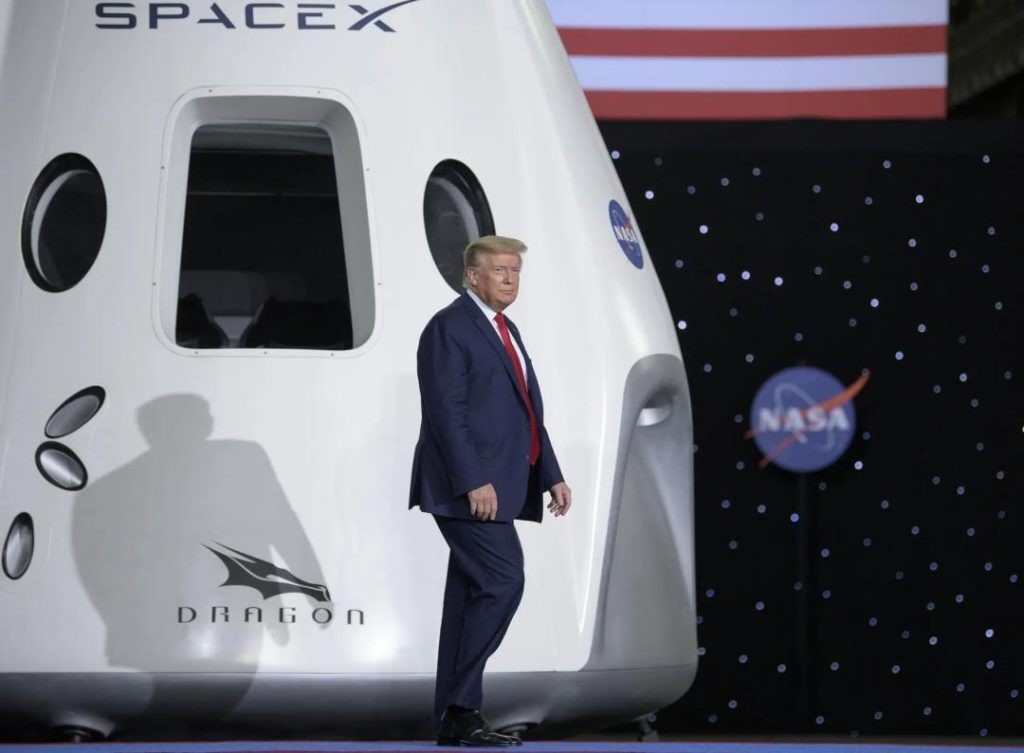
What happens if SpaceX decommissions Dragon spacecraft?
In a recent development, SpaceX CEO Elon Musk threatened to decommission the Dragon spacecraft, a decision that sent shockwaves across the space community. The news sparked widespread concern, as it is unclear what would happen to the US space agency’s human spaceflight capabilities if the Dragon spacecraft is indeed decommissioned.
The Dragon spacecraft, designed and built by SpaceX, has been a crucial component of the US space agency’s efforts to transport astronauts to and from space. Since its maiden voyage in 2012, the Dragon has completed numerous missions, carrying both crew and cargo to the International Space Station (ISS). The spacecraft has also played a vital role in NASA’s plans to return humans to the Moon by the mid-2020s.
However, the recent controversy surrounding the Dragon spacecraft raises questions about its future. If SpaceX were to decommission the spacecraft, it would leave the US with no reliable, operational means to transport astronauts to and from space. This would have significant implications for NASA’s human spaceflight programs, as well as the country’s ability to send humans to the Moon and beyond.
The significance of the Dragon spacecraft
The Dragon spacecraft is a critical component of NASA’s human spaceflight program. Since its inception, the spacecraft has played a vital role in supporting the ISS, carrying crew members, cargo, and scientific experiments to the orbiting laboratory. The spacecraft’s capabilities have enabled NASA to conduct a wide range of scientific research, from studying the effects of microgravity on the human body to testing new technologies for future space missions.
In addition to its role in supporting the ISS, the Dragon spacecraft has also been instrumental in NASA’s plans to return humans to the Moon. The spacecraft is designed to carry astronauts to the lunar surface, where they will conduct scientific experiments and gather data that will help inform future manned missions to Mars.
The potential consequences of decommissioning the Dragon spacecraft
If SpaceX were to decommission the Dragon spacecraft, it would have significant consequences for NASA’s human spaceflight programs. The US space agency would be left without a reliable means of transporting astronauts to and from space, forcing it to rely on foreign partners like Russia for human spaceflight access.
Russia’s Soyuz spacecraft is currently the only operational means of transporting astronauts to and from the ISS. However, NASA has been working to develop a new US-based crew vehicle, known as the Orion spacecraft, to replace the Soyuz. The Orion spacecraft is currently undergoing testing and is expected to be operational by the mid-2020s.
However, the decommissioning of the Dragon spacecraft could delay or even cancel NASA’s plans to develop the Orion spacecraft. This would leave the US space agency without a reliable means of transporting astronauts to and from space, forcing it to rely on foreign partners like Russia.
The implications for US space policy
The potential decommissioning of the Dragon spacecraft also has significant implications for US space policy. The US government has invested heavily in the development of the Dragon spacecraft, and its decommissioning would be a significant setback for the country’s space program.
The decommissioning of the Dragon spacecraft could also have broader implications for US space policy. The US has historically been a leader in space exploration, but in recent years, it has faced increased competition from other countries like China and Russia.
The decommissioning of the Dragon spacecraft could undermine the US’s position as a leader in space exploration, forcing it to rely on foreign partners for human spaceflight access. This could have significant implications for the country’s national security and its ability to project power around the world.
Conclusion
The potential decommissioning of the Dragon spacecraft is a significant concern for the space community. The spacecraft is a critical component of NASA’s human spaceflight program, and its decommissioning would leave the US with no reliable means of transporting astronauts to and from space.
The implications of decommissioning the Dragon spacecraft are far-reaching, from delaying or canceling NASA’s plans to develop the Orion spacecraft to undermining the US’s position as a leader in space exploration.
As the space community continues to monitor the situation, it is clear that the potential decommissioning of the Dragon spacecraft is a significant concern that requires careful consideration and planning.






